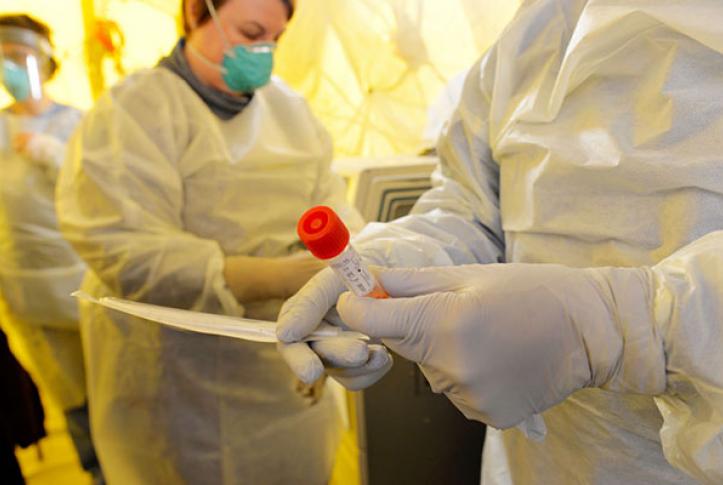As the COVID-19 pandemic sweeps across the country, Americans are wondering whether they have coverage for testing and treatment related to the virus. Although federal and state government programs like Medicare and Medicaid cover certain categories of Americans (the elderly, low-income Americans, veterans, and Native Americans, for example), most of us are covered through private health insurance or group health plans. Nearly 60 percent of Americans under age 65 are covered through their jobs, while an additional 7 percent are covered through the individual market. For those of us in this category, the most pressing question is: What does our private insurance cover?
Variables Affecting Coverage
The answer changes depending on a number of variables. First, what kinds of medical costs are involved? The three relevant categories are the cost of diagnostic tests to detect the virus, the administration of diagnostic tests by outpatient or emergency room providers and facilities, and treatment for medical complications related to the virus.
Second, the answer will depend on the type of coverage involved. There are numerous kinds of private insurance, including individual coverage, small-employer (50 or fewer employees) group insurance, large-employer (51 or more employees) group insurance, and employer self-insured coverage. There are also nontraditional insurance products, such as short-term limited duration plans, health care sharing ministries, self-insured student health plans, excepted benefit policies, or farm bureau plans.
A third variable is the scope of coverage. Is a test or treatment covered at all? Is it subject to deductibles or other cost-sharing? Is it only covered for in-network providers? Is it subject to prior authorization or other limits? Some insurers are voluntarily expanding the scope of their coverage or limiting cost-sharing during the current crisis, but these expansions do not necessarily apply to self-insured plans.
A final variable is the effect of state law. Federal law provides baseline coverage requirements for most plans. States regulate insurers in the individual and group markets and have the authority to regulate short-term limited duration coverage or other products not subject to federal law. Self-insured employer plans are subject only to federal and not state regulation.
COVID-19 Legislation and Coverage
The Families First Coronavirus Response Act, adopted this week by Congress, clarifies federal law with respect to coverage. Group health plans — either self-funded or insured — and individual health insurance plans, including those grandfathered under the Affordable Care Act (ACA), must cover approved diagnostic tests as well as health care provider office, urgent care center, telehealth, or emergency room visits that result in orders for diagnostic testing insofar as the services received during the visit relate to testing or determining the need for testing. The coverage cannot impose cost-sharing (i.e., deductibles, copayments, and coinsurance) and cannot be subjected to prior authorization or other medical management requirements. If the visit does not result in a COVID-19 test, or provides services unrelated to COVID-19 testing, it can be subject to cost-sharing or perhaps not even be covered. These requirements start at the date of enactment of the Response Act and last through the duration of the national COVID-19 emergency.
Coverage Under Other Federal Laws
The Response Act does not require group health plans or insurers to cover any treatment for complications related to COVID-19 if a test is positive. Large-employer group health plans are not subject to any treatment coverage requirements. Overall, large employers who fail to offer “minimum value” coverage to their employees — that is, covering 60 percent of claims costs on average and “substantial” coverage of physician and hospital services — risk having to pay an employer shared responsibility payment. But this minimum-value coverage would not necessarily cover treatment for COVID-19 complications. Self-insured small groups are not even subject to the minimum-value standard. Large-employer and self-funded plans are subject to maximum out-of-pocket limits under the ACA — $8,150 for individual and $16,300 for family for 2020 — but these limits apply only to covered services when received through in-network providers. Nevertheless, most large-employer plans cover physician and hospital services and are likely to cover testing and treatment, though treatment costs will likely be subject to normal cost-sharing.
The ACA requires individual and insured small-group plans to cover 10 “essential health benefits.” These include ambulatory services, hospital care, lab tests, and prescription drugs. The specific services that plans must cover vary from state to state, however. Each state has its own “benchmark plan” — usually one of the state’s largest small-group plans — that defines benefits insurers in that state must cover. One state’s essential health benefits may, for example, fail to include telehealth or home-delivered health services. Most covered essential health benefits are also subject to cost-sharing requirements up to the maximum out-of-pocket limits and are often limited to in-network providers. Patients who receive treatment from out-of-network providers, voluntarily or involuntarily, could be subject to surprise medical bills, which would involve charges significantly higher than normal cost-sharing. Finally, while prescription drugs must be covered as an essential health benefit, each insurer has its own formulary. Drugs prescribed for medical problems secondary to COVID-19 (as there is no drug yet available for treating the virus itself) may not be covered by a particular insurer or may be subject to extra cost-sharing. For example, this might include drugs for treating pneumonia.
Under the ACA, all group health plans and insurers must cover without cost-sharing preventive services that are given A or B ratings by the Preventive Services Task Force. This may one day include COVID-19 screening tests, but insurers must be given at least a year’s notice before they are required to cover new preventive services. Also, diagnostic tests prescribed to symptomatic individuals may not qualify as preventive services. In any event, under the Response Act, diagnostic tests must be covered without cost-sharing by covered insurers and group plans for the duration of the current emergency.
Federal law does not regulate the coverage or cost-sharing of short-term limited duration plans, excepted benefit plans, health care sharing ministries, farm bureau plans, or self-insured plans. These plans are generally subject to state law; some state insurance departments are imposing coverage requirements.
Can Uninsured People Enroll in Coverage Now?
One final question focuses on enrollment: Can an uninsured person sign up now for individual insurance to cover medical expenses? The short answer is that open enrollment for individual coverage is closed for the year. Unless an individual qualifies for a special enrollment period — for example, through loss of job-based coverage — it is too late to enroll through HealthCare.gov, the federal marketplace. State exchanges can establish their own special enrollment periods and some are doing so for the emergency. The Response Act permits states to cover testing for uninsured individuals (which includes individuals enrolled in non-ACA coverage) through Medicaid and allows coverage under a federal emergency program, but this may not be operational immediately or available in all states.
In sum, for now COVID-19 diagnostic tests should be available without cost-sharing for most Americans, but the uninsured may have a harder time accessing them than the insured. If testing finds COVID-19 to be present, treatment of complications will likely be subject to normal cost-sharing and network requirements.




